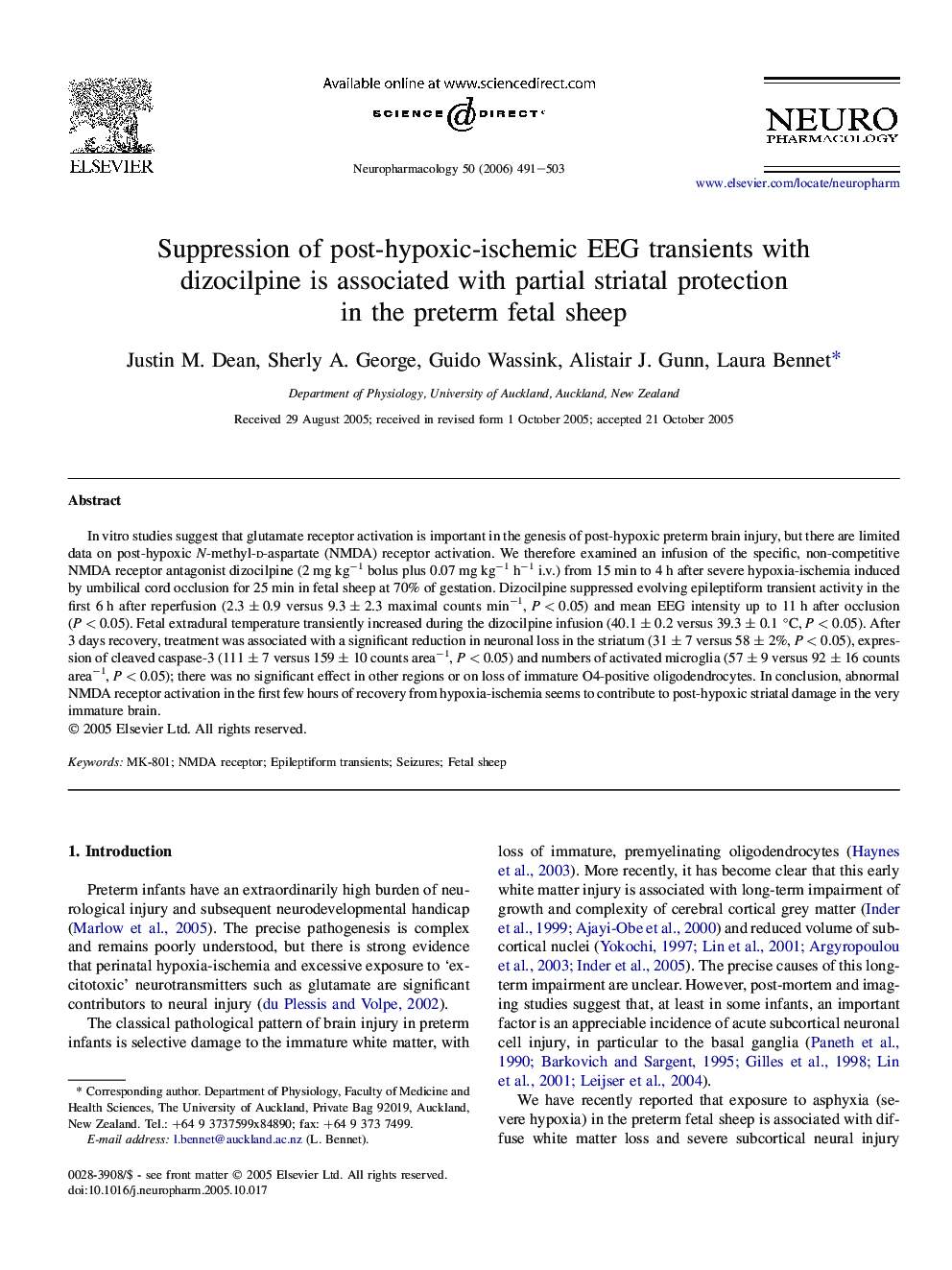| Article ID | Journal | Published Year | Pages | File Type |
|---|---|---|---|---|
| 2495225 | Neuropharmacology | 2006 | 13 Pages |
In vitro studies suggest that glutamate receptor activation is important in the genesis of post-hypoxic preterm brain injury, but there are limited data on post-hypoxic N-methyl-d-aspartate (NMDA) receptor activation. We therefore examined an infusion of the specific, non-competitive NMDA receptor antagonist dizocilpine (2 mg kg−1 bolus plus 0.07 mg kg−1 h−1 i.v.) from 15 min to 4 h after severe hypoxia-ischemia induced by umbilical cord occlusion for 25 min in fetal sheep at 70% of gestation. Dizocilpine suppressed evolving epileptiform transient activity in the first 6 h after reperfusion (2.3 ± 0.9 versus 9.3 ± 2.3 maximal counts min−1, P < 0.05) and mean EEG intensity up to 11 h after occlusion (P < 0.05). Fetal extradural temperature transiently increased during the dizocilpine infusion (40.1 ± 0.2 versus 39.3 ± 0.1 °C, P < 0.05). After 3 days recovery, treatment was associated with a significant reduction in neuronal loss in the striatum (31 ± 7 versus 58 ± 2%, P < 0.05), expression of cleaved caspase-3 (111 ± 7 versus 159 ± 10 counts area−1, P < 0.05) and numbers of activated microglia (57 ± 9 versus 92 ± 16 counts area−1, P < 0.05); there was no significant effect in other regions or on loss of immature O4-positive oligodendrocytes. In conclusion, abnormal NMDA receptor activation in the first few hours of recovery from hypoxia-ischemia seems to contribute to post-hypoxic striatal damage in the very immature brain.
